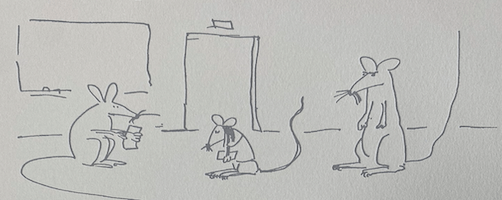One of the deep pleasures of this blog is discovering poets I hadn’t encountered before whose work dazzles me. Today it’s Megan Nichols, whose poem I first read in Poetry Daily. My mother, a psychoanalyst, was a thoughtful interpreter of dreams. It was her forté–she could ask the right questions to eke out the often confusing meaning. So I found this poem especially vivid and moving as it cascades to the action of the ending.
Interpreting Dreams
If everyone in the dream is you
(and everyone in the dream is you)
then when you stand naked in the classroom,
you are the classmates, the teacher, and the flesh.
And when your mother drowns you in the tub
you are the mother, the child, and the bathwater.
And when all your teeth fall out at once, think
of yourself as not just the Chiclets clattering
to the tile, not just the empty mouth gaping, gums
softening like frozen yogurt melt. No, think
of yourself as the fall too, not the thing that will fall,
or the thing that has fallen, not the force behind
the falling, nor the thing that falls. You are the verb,
the act of, the motion as it moves.
from Threepenny Review
